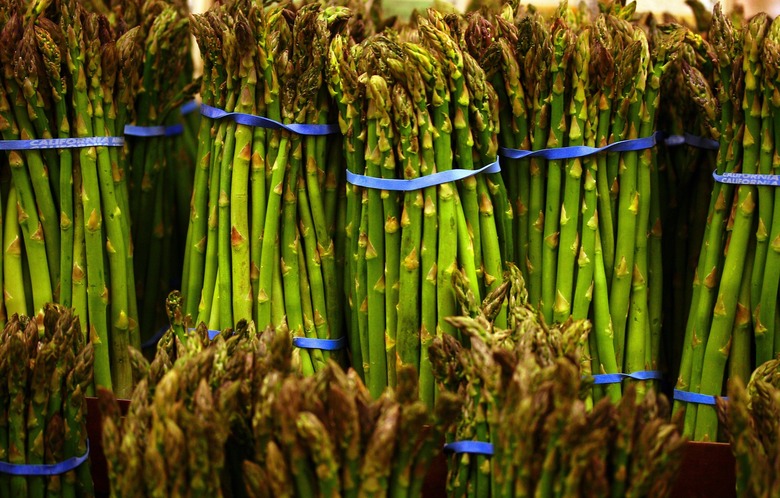Science Explains Why Asparagus Makes Your Pee Smell Funny
This WebMD question really explains the meat of the issue at hand in this article and is incredibly LOL-worthy:
"Q: I've noticed that when I eat asparagus, my urine has a funny smell. Is that normal?
A: It's totally normal. In fact, the effect of asparagus on urine odor has been observed for centuries. French novelist Marcel Proust famously wrote in 1913 that asparagus 'transforms my chamber-pot into a flask of perfume.' And one British men's club is said to have put up a sign reading, 'During the asparagus season, members are requested not to relieve themselves in the hat stand.'"
Click here for 22 Superfoods You Need To Stay Healthy This Spring.
Now that we've got that out of our system, let's discuss why getting asparagus-laden pee out of our system is often a unique olfactory experience. Have you ever left liquid protein in a sealed shaker for too long? When you're unfortunate enough to open it back up, it really stinks. Like, really, really smells horrendously awful. This is because of the sulfurous smell that the building blocks of proteins, amino acids, tend to carry.
Well guess what? Asparagus contains protein, too, and its amino acids break down in a particularly pungent way. Unlike the relatively neutral scent of asparagus in the raw, the broken down components of this nutritious vegetable's amino acids can become airborne, allowing some of us to smell them in their most putrid form. The crazy thing that many of you have probably experienced is that asparagus can taint the smell of your urine unbelievably quickly. After eating asparagus, it isn't rare for your very next trip to the can to smell strangely bitter and all-around icky. It takes as little as 15 minutes for asparagus to infect (that's such a harsh word and it's not technically accurate, but we're keeping it anyway) your pee.
This smelly combination of chemicals is known as asparagusic acid and, believe it or not, is unique to asparagus. While some of us can clearly smell it, others have a harder time detecting the stench. Smithsonian Mag covers the hot (98.6 degrees warm, we'd say) topic of those who can't smell asparagus in urine, saying, "Some believe that, for physiological reasons, these people (which constitute anywhere from 20 to 40 percent of the population) don't produce the aroma in their urine when they digest asparagus, while others think that they produce the exact same scent, but somehow lack the ability to smell it."
While there's no conclusive evidence for either camp, further studies have shown the potential for one genetic mutation to be present amongst those who can't smell asparagus in their pee. Whether it's your nose's incapability to detect the aroma, your stomach's ability to reduce the scent of asparagusic acid, or something else altogether, those of us that are lucky enough to be "blessed" with the ability will continue to eat asparagus warily for the remainder of our leafy green days.
